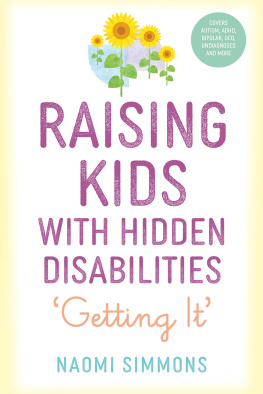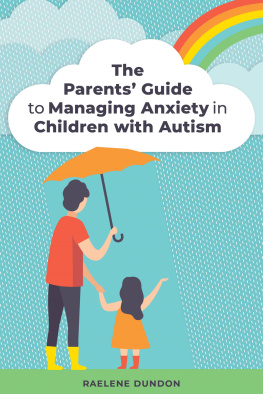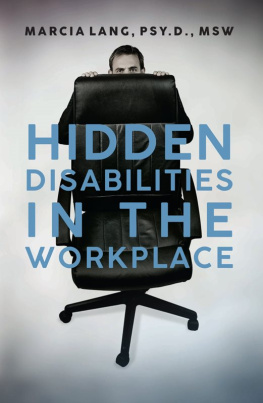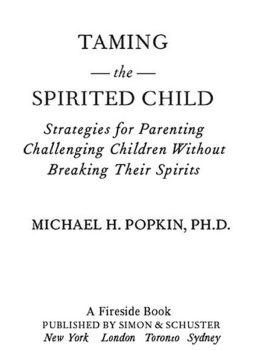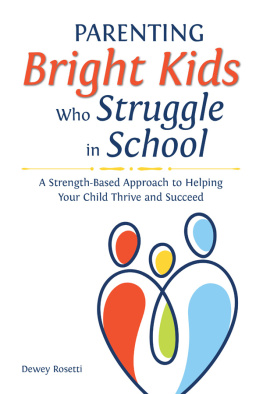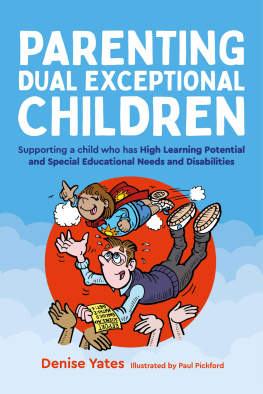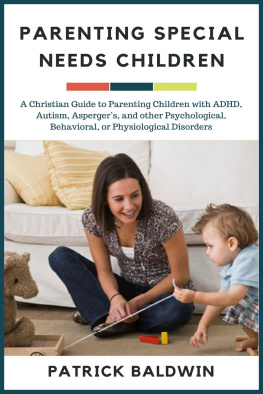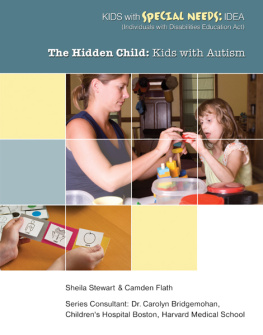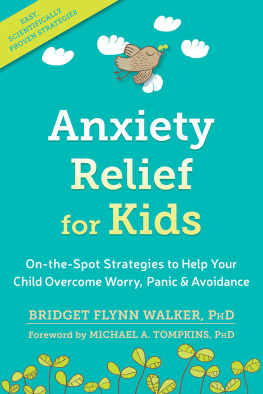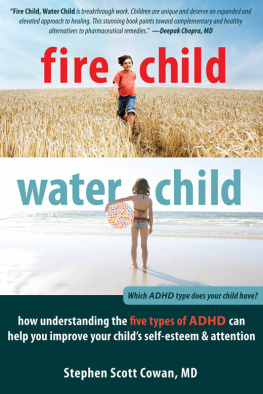Contents
Page list

of related interest
Autistic Logistics, Second Edition
A Parents Guide to Tackling Bedtime, Toilet Training, Meltdowns, Hitting, and Other Everyday Challenges
Kate Wilde
ISBN 978 1 78775 749 3
eISBN 978 1 78775 750 9
The Parents Guide to ADHD Medicines
Professor Peter Hill
ISBN 978 1 78775 568 0
eISBN 978 1 78775 569 7
Connecting and Communicating with Your Autistic Child
A Toolkit of Activities to Encourage Emotional Regulation and Social Development
Act for Autism
ISBN 978 1 78775 550 5
eISBN 978 1 78775 551 2
A Parents Guide to Autism Diagnosis
What to Expect and How to Support Your Child
Dr Sophia Mooncey and Adele Devine
ISBN 978 1 78775 424 9
eISBN 978 1 78775 425 6
Helping Your Child with PDA Live a Happier Life
Alice Running
ISBN 978 1 78775 485 0
eISBN 978 1 78775 486 7
RAISING
KIDS
WITH HIDDEN
DISABILITIES
Getting It
Naomi Simmons

First published in Great Britain in 2022 by Jessica Kingsley Publishers
An imprint of Hodder & Stoughton Ltd
An Hachette Company
Copyright Naomi Simmons 2022
Front cover image source: iStockphoto and Shutterstock.
All rights reserved. No part of this publication may be reproduced, stored in a retrieval system, or transmitted, in any form or by any means without the prior written permission of the publisher, nor be otherwise circulated in any form of binding or cover other than that in which it is published and without a similar condition being imposed on the subsequent purchaser.
Disclaimer: The information contained in this book is not intended to replace the services of trained medical professionals or to be a substitute for medical advice. The treatments and therapies described in this book may not be suitable for everyone to follow. You are advised to consult a doctor on any matters relating to your and your childrens health, and in particular on any matters that may require diagnosis or medical attention.
A CIP catalogue record for this title is available from the British Library and the Library of Congress
ISBN 978 1 83997 155 6
eISBN 978 1 83997 156 3
Jessica Kingsley Publishers policy is to use papers that are natural, renewable and recyclable products and made from wood grown in sustainable forests. The logging and manufacturing processes are expected to conform to the environmental regulations
of the country of origin.
Jessica Kingsley Publishers
Carmelite House
50 Victoria Embankment
London EC4Y 0DZ
www.jkp.com
To William, for taking my hand and
making anything feel possible.
CONTENTS
ACKNOWLEDGEMENTS
This book is a result of the help, inspiration and support of hundreds of families living with hidden disabilities over a period of many years. My deepest gratitude to you, for being my teachers, my support network and for encouraging me on those many days when I was doubting myself.
A particular thank you to my wonderful circle of readers for your time and effort in commenting on the various drafts of this book. Your wisdom, support and suggestions have been invaluable and helped me to find the confidence to complete this project. I would particularly like to mention Sue Dickson for going beyond anything I could have hoped for from a reader. The same applies to Susan Raes I dont think I could have done this without you. A big thank you also to Shara Cohen, Sarah Beskine, Dani Zur, Sarah James, Jane Hudson and Clare Goldfinch.
I am also indebted to my clinical advisors for sharing their ideas, encouragement and suggested amendments. A deep thanks to Dr Patricia Rios, Consultant Clinical Psychologist and Dr Georgie Siggers, Consultant Neurodevelopmental Paediatrician.
To the organisations and parent forums that got me through the many years when I was struggling, in particular the Balanced Mind Parent Network (www.dbsalliance.org). Thank you.
It has been my great fortune to have the support of a wonderful editorial team at Jessica Kingsley Publishers, with particular mention to Lisa Clark and everyone there who shared ideas, suggestions and insights.
My biggest acknowledgement is obviously to my family, for helping me, challenging me and being the reason for everything I do.
And to my canine family for making sure I exercise every day and have a constant supply of unconditional love, wagging tails and licked noses. Thank you to Ruby the large mnsterlnder and Sooty the flat-coated retriever (now sadly departed).

INTRODUCTION
When one of my children was 11, we were faced with diagnoses of a range of hidden disabilities, including Aspergers, OCD and bipolar disorder. Another of my children also had difficulties which I suspected were undiagnosed hidden disabilities. Before, during and after this time I was pretty clueless about what to do and how to cope. Life was tough and frightening on every level and this affected us all.
Happily, I came out the other side of this with brilliant and thriving kids as well as a huge amount of accumulated knowledge and insights. I wrote this book to share this knowledge with you in the hope that you will not have to make the same mistakes that I made. I hope that some of this will be helpful to you in your own journey of parenting a child with a hidden disability.
So, do you have a child with a hidden disability such as autism spectrum, ADHD, Aspergers, bipolar, clinical anxiety or depression? Maybe you just know in your bones that something needs looking at.
Before I go further, just a quick note about the very word disability. Its a tricky word that can bring up strong feelings and mean different things to different people. In this book I am using the legal meaning of disability, which is about our childs needs and rights . This is different from whether or not our child identifies as being disabled. It is perfectly possible to recognise disability needs and at the same time not identify personally as having a disability. I, for example, do not really think of myself as disabled although I have a number of hidden disabilities that affect my life.
How we can use the legal definition of disability to help us is looked at in some detail in the first chapter.
Raising kids with hidden disabilities is not a fringe or niche area of parenting. At least 10 per cent of children have hidden disabilities, according to the US government. When we add to this all those with unidentified difficulties, we can see that we are dealing with a lot of kids and a lot of confused and overwhelmed parents.
Sadly, there is still a stigma about hidden disabilities and our loved ones may be burdened by shame about who they are. This stigma and shame can make it really hard to talk openly about hidden disabilities and our childrens legitimate needs. It is not surprising that so many of our loved ones deal with this by doing what they can to hide and disguise who they are and what their needs may be.
I believe that recognising our needs, championing our rights and standing proud about who we are is the best way to challenge stigma.
Maybe you have a diagnosis or are trying to get one. You may be unsure whether or not to have your child diagnosed. Maybe you are not happy with the diagnosis you have or have disagreements in your family about whether or not your child has a hidden disability.

